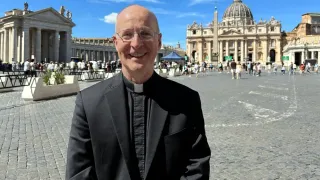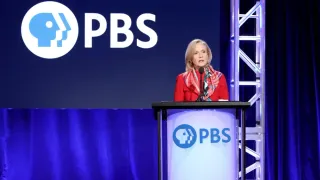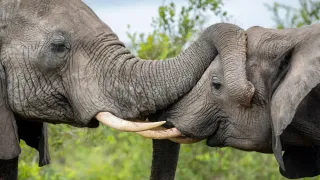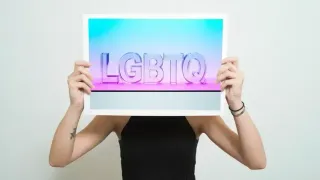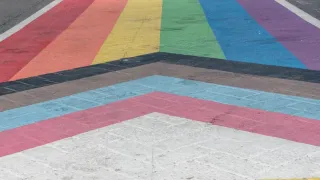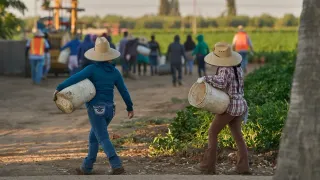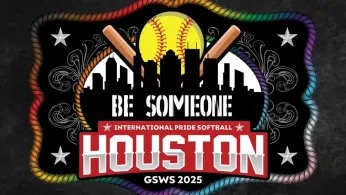
4 hours ago
Republican Outrage Grows Over Harris County’s Sponsorship of Gay Softball World Series
READ TIME: 3 MIN.
The Harris County Commissioners Court’s 4-1 vote to approve $468,610 for the sponsorship of the 2025 Gay Softball World Series has become the latest flashpoint in ongoing debates over public funding for LGBTQ+ events. Scheduled to take place across five fields in Houston from September 21 to 27, the tournament is expected to bring thousands of athletes and fans to the region, boosting local tourism and visibility for the LGBTQ+ community .
The push for county sponsorship was led by Democratic Commissioner Adrian Garcia, who argued that the event would “more than pay for itself in economic impact,” noting that half the funds are drawn from hotel occupancy taxes earmarked for tourism initiatives. Garcia emphasized the positive financial and social implications, stating that Harris County has a tradition of supporting large-scale, inclusive events that attract visitors and foster a welcoming atmosphere for all residents .
Despite these arguments, opposition quickly mounted among conservatives and Republicans. Mark McCaig, publisher of the Texas Voice and a prominent conservative activist, took to social media to denounce the funding request, framing it as wasteful and politically motivated. McCaig’s post on X (formerly Twitter) highlighted the nearly half-million-dollar allocation, questioning its justification as economic development and rallying like-minded critics to voice their concerns .
Republican Precinct Three Commissioner Tom Ramsey echoed these sentiments during the court’s proceedings, casting the sole “no” vote against the sponsorship. Ramsey and other critics cited Harris County’s estimated $200 million budget shortfall, arguing that taxpayer dollars should be conserved for essential services rather than allocated to a softball tournament, regardless of its purported benefits. Raquel Hernandez-Boujourne, a challenger to Garcia in the upcoming election, described the move as “fiscal negligence,” underscoring the perception of misplaced priorities amid financial strain .
The debate extended beyond Harris County’s borders, as the event’s organizers revealed that their application for state funding had been denied by the Texas governor’s office—a sharp departure from previous years when similar LGBTQ+ sports events received substantial state support. Jeff Sloan, commissioner for the organizing group iPride, expressed disappointment and concern over the withdrawal of state backing, noting that such decisions can undermine the sense of welcome and belonging for queer athletes and fans .
For many in Houston’s LGBTQ+ community, the Gay Softball World Series represents more than a sporting event—it is a celebration of queer identity, resilience, and community. The tournament is expected to draw over 3,000 athletes and 2,000 fans, generating significant tourism revenue and spotlighting Houston as a welcoming destination .
Organizers and participants emphasize that such events are vital for fostering visibility and acceptance, particularly at a time when anti-LGBTQ+ rhetoric remains prevalent in many political circles. The loss of state support was described by Sloan as “heartbreaking,” but he expressed gratitude for the county’s willingness to step in, providing crucial resources that enable the event to proceed and thrive .
In public statements, Commissioner Garcia and fellow Democrat Lesley Briones acknowledged concerns about the county’s budget but reiterated their belief in the long-term benefits of supporting inclusive events. Both officials floated ideas such as hiring freezes to address fiscal pressures, while reaffirming their commitment to LGBTQ+ visibility and economic growth .
The controversy reflects deeper national and local tensions over public funding for LGBTQ+ initiatives. While Houston has hosted previous iterations of the Gay Softball World Series and similar events in Dallas and Austin received state support, the shift in political climate—marked by increased scrutiny of LGBTQ+ spending—has made such decisions more contentious .
Advocates argue that these debates are emblematic of broader efforts to restrict queer visibility and resources, particularly in conservative-leaning states. The Harris County decision has therefore garnered national attention, with LGBTQ+ organizations and allies rallying in support of the commissioners’ actions.
At the same time, critics warn that continued allocation of public funds to LGBTQ+ events could fuel backlash and deepen political divisions, especially as budgetary constraints intensify. The outcome of the upcoming elections may further influence the trajectory of public support for queer initiatives in Texas and beyond.
As preparations for the September tournament continue, organizers remain focused on delivering a world-class event that celebrates diversity and inclusion. The Gay Softball World Series promises not only athletic competition but also a powerful statement of resilience, pride, and community spirit. For queer Texans and their allies, the event serves as a reminder of the ongoing struggle for recognition and equality in the face of political opposition.
While the debate over funding underscores persistent challenges, it has also galvanized support and renewed commitment to LGBTQ+ advocacy in Houston and across Texas. The outcome of the Gay Softball World Series—and the broader conversation it has sparked—will likely shape the future of queer visibility and public support in the region for years to come.
